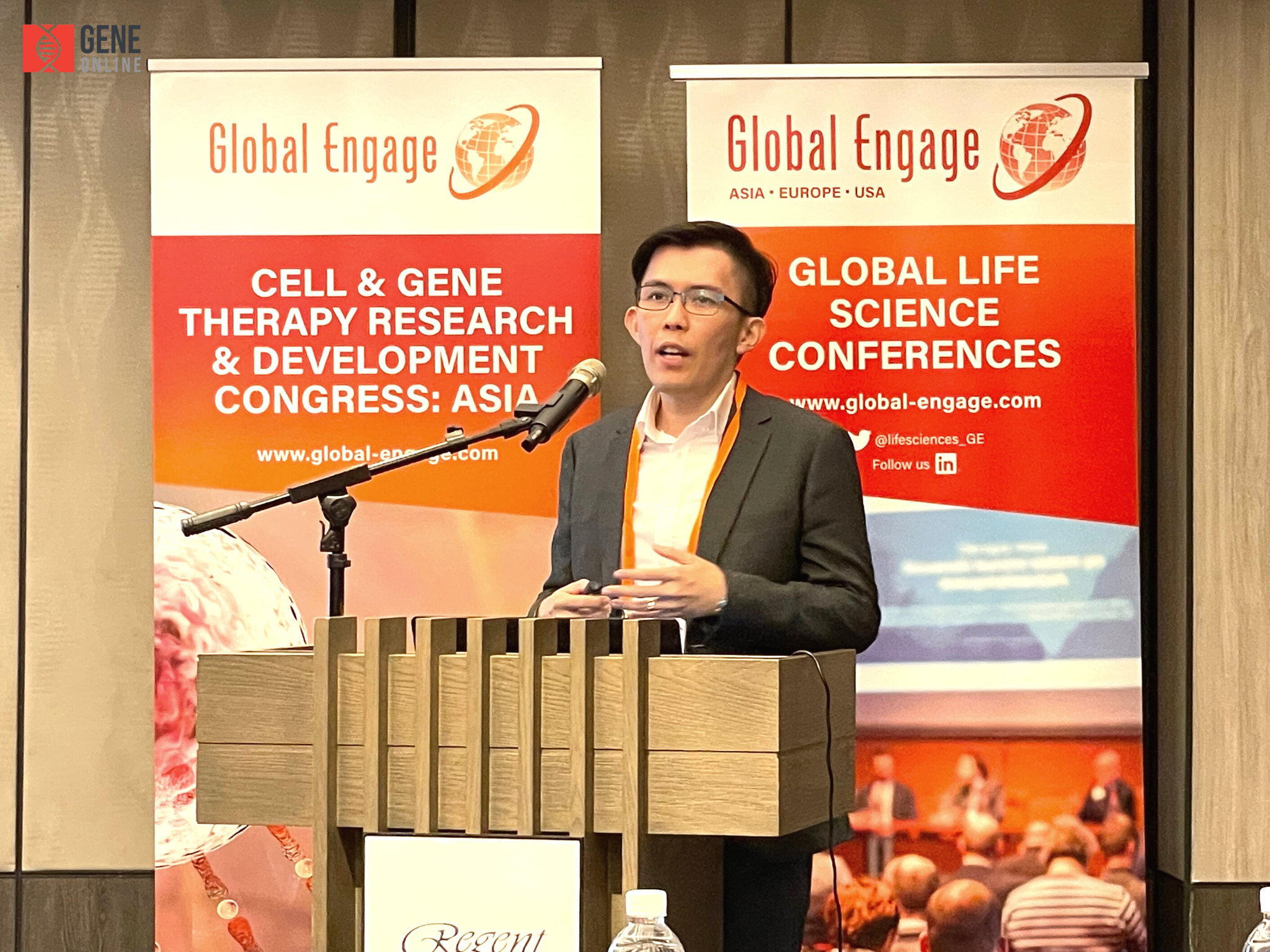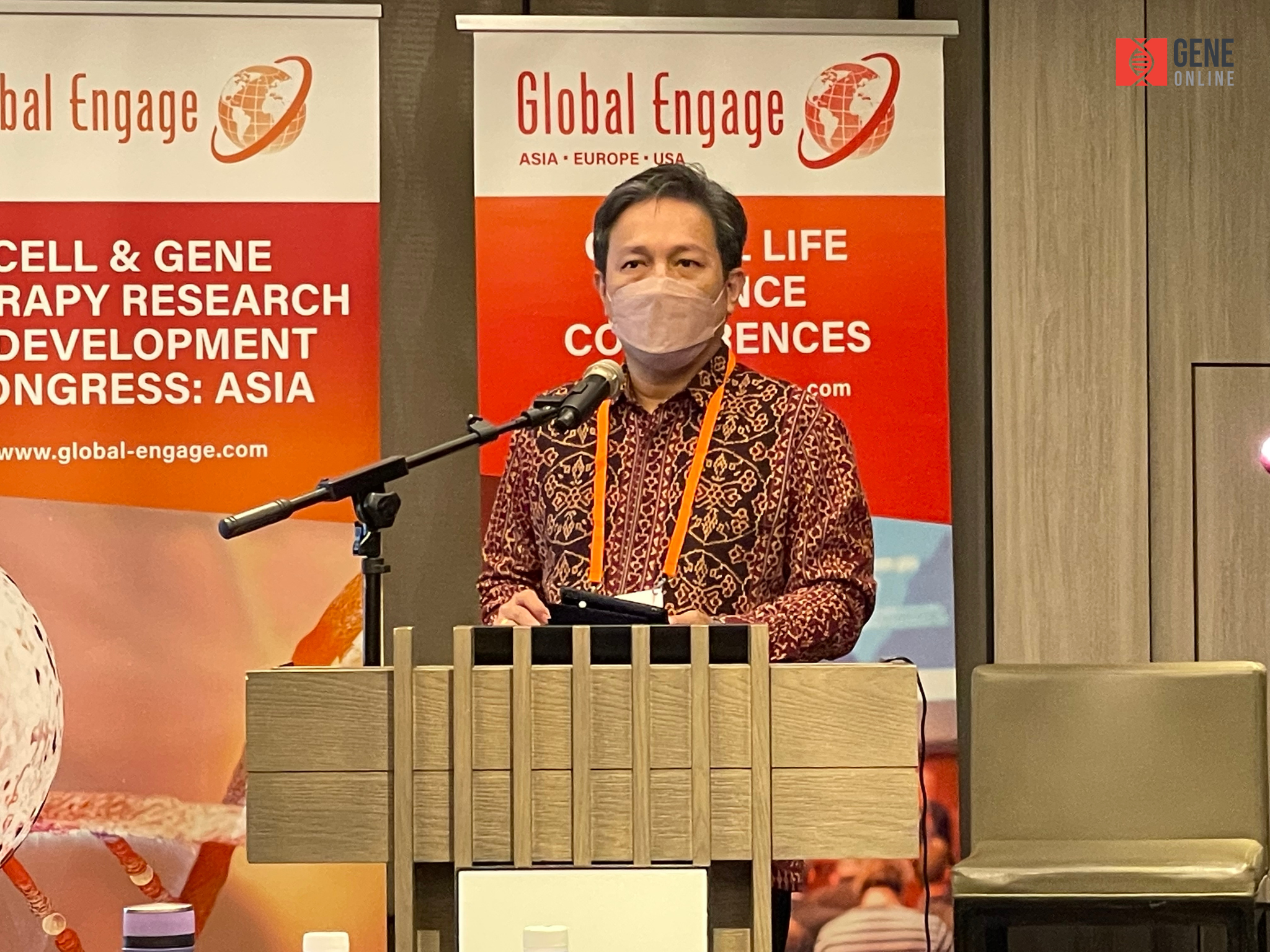Developments in Regenerative Medicine: Gene Delivery Tools and Cell Therapy for Parkinson’s Disease
As the Cell & Gene Therapy Research & Development Congress 2023 entered its second day, experts from around the world continued to share their latest research findings on emerging technologies of cell and gene therapy.
Unlocking the Potential of Non-Viral Vector Approach for CGT
In the past 40 years, cell and gene therapy (CGT) has always been the center of healthcare innovation with the promise to stop or slow the progress of the disease more effectively. It offers a potential solution to patients suffering from serious and rare diseases, for example, CAR-T combining CRISPR technologies for anticancer treatments.
Related Article: Cell & Gene Therapy Congress Asia Day One: Strategies and Applications
Edward Wong, Regional Product Manager of GenScript Biotech introduced the current trend of gene and cell therapy for cancer diseases. Several studies have been conducted to reprogram T cells for anticancer treatments. Following up, Wong addressed strategies of non-viral based gene and cell therapy using CRISPR Technology for oncology immunotherapies.

Case studies of T-cell engineering with non-viral approaches are also shared in Wong’s talk. Since the viral-based approach goes together with a high off-target rate, lengthy manufacturing process, and expensive costs. GenScript aims to leverage its expertise in gene synthesis and cell therapy; some publications show that supported by the company’s non-viral genome targeting technique, it successfully increases knock-in efficiency in gene therapy.
Promising Outcomes from the Investigative Cell Therapy for Parkinson’s Disease
Being the second most common neurodegenerative disease, Parkinson’s disease (PD) has affected more than 10 million people worldwide. However, even though there are FDA-approved drugs for PD, the efficacy can still be improved. Therefore, there are still unmet clinical needs to be resolved.
Cell-based therapy has been studied as an alternative for PD, with different routes of administration. In particular, human adipose tissue-derived mesenchymal stem cells (ASC) have demonstrated an interesting immunomodulatory potential.
After lipoaspirate processing, adipose-derived Mesenchymal Stem Cells (MSCs) are obtained along with macrophages, pericytes, T cells, endothelial progenitor, mature cells, monocytes and other nucleated stromal cells which together comprise a substance referred to as Stromal Vascular Fraction (SVF). Similar to MSC from other sources, adipose-derived SVF cells secrete a variety of paracrine factors with immunomodulatory and trophic activities including anti-inflammatory, anti-fibrotic, anti-apoptotic, and angiogenic properties.

Dr. Sandy Qlintang, director of PT Kalbethen stem cell and cancer institute, showed some cases examples after receiving SVF implantation, demonstrating tremendous progress one week and one month post-treatment. However, the mechanism leading to these results still remains unclear, and further investigations regarding SVF’s efficacy in treating PD are also needed. Furthermore, Dr. Qlintang also pointed out that many SVF studies are currently still in preclinical phases, in other words, they are still at an early investigative stage, but SVF’s potential for clinical application is enormous.
©www.geneonline.com All rights reserved. Collaborate with us: service@geneonlineasia.com








